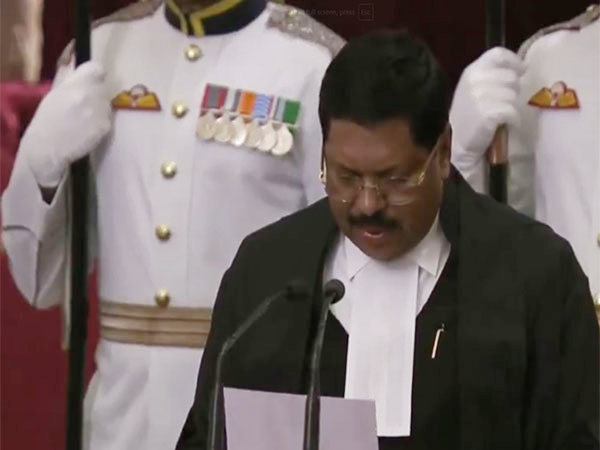New Delhi [India], June 11 (ANI): Many decades ago, millions of Indian citizens were called “untouchables.” They were told they were impure and that they could not speak for themselves. But here we are today, where a person belonging to those very people is speaking openly as the holder of the highest office in the country’s judiciary, said Chief Justice of India BR Gavai.
CJI Gavai, the second Dalit and the first Buddhist to hold India’s highest judicial office, spoke at the Oxford Union on Tuesday on the theme ‘From Representation to Realisation: Embodying the Constitution’s Promise’.
He highlighted the positive impact of the Constitution on marginalised communities, saying that the Constitution has given people equal place in every sphere of society and power.
“Many decades ago, millions of citizens of India were called ‘untouchables’. They were told they were impure. They were told that they did not belong. They were told that they could not speak for themselves. But here we are today, where a person belonging to those very people is speaking openly, as the holder of the highest office in the judiciary of the country. This is what the Constitution of India did. It told the people of India that they belong, that they can speak for themselves, and that they have an equal place in every sphere of society and power,” he said.
“At the Oxford Union today, I stand before you to say: for India’s most vulnerable citizens, the Constitution is not merely a legal charter or a political framework. It is a feeling, a lifeline, a quiet revolution etched in ink. In my own journey, from a municipal school to the Office of the Chief Justice of India, it has been a guiding force,” said the CJI.
He said the Constitution is a social document, one that does not avert its gaze from the brutal truths of caste, poverty, exclusion, and injustice. “It does not pretend that all are equal in a land scarred by deep inequality. Instead, it dares to intervene, to rewrite the script, to recalibrate power, and to restore dignity,” CJI said at the gathering.
The Constitution of India carries within it the heartbeat of those who were never meant to be heard, and the vision of a country where equality is not just promised, but pursued, he said, adding that it compels the State not only to protect rights but to uplift, to affirm, to repair actively.
CJI said that during the framing of India’s Constitution, a remarkable and often overlooked truth emerged: many of the nation’s most vulnerable social groups were not merely subjects of constitutional concern but active participants in its making.
“From Dalits and Adivasis, to women, minorities, persons with disabilities, and even those once unjustly branded
as “criminal tribes,” their presence in the Constituent Assembly, and in the broader constitutional imagination, was a collective demand for justice,” said the CJI.
He said Dr BR Ambedkar as the Chairman of the Drafting Committee of the Indian Constitution, played a foresighted and defining role in embedding adequate safeguards and affirmative measures into the constitutional text, particularly the principle of representation.
“In an unequal society, he believed, democracy cannot survive unless power is also divided among communities, not just among institutions. Representation, therefore, was a mechanism of redistributing power, not only between the legislature, executive, and judiciary, but among social groups that had been denied a share for centuries, CJI further said. (ANI)
Disclaimer: This story is auto-generated from a syndicated feed of ANI; only the image & headline may have been reworked by News Services Division of World News Network Inc Ltd and Palghar News and Pune News and World News
HINDI, MARATHI, GUJARATI, TAMIL, TELUGU, BENGALI, KANNADA, ORIYA, PUNJABI, URDU, MALAYALAM
For more details and packages












